Commentary
China needs energy, petrol, and gas, as well as forest and mineral products. Burma’s junta, which controls the forests and minerals, needs money and the Chinese regime is happy to buy.
Nobel laureate Aung San Suu Kyi has been the democratic hope for Burma (also known as Myanmar) for decades. After years of house arrest, her National League for Democracy Party (NLDP) was finally permitted to participate in a democratic election in 2015, which they won by a landslide. In 2020, Suu Kyi won reelection by an even larger margin, but was arrested shortly after, when a military coup seized control of the government. Now, in need of money and facing Western sanctions, the coup is expanding its business with China.
Historically, some of Burma’s largest exports have been forest products, minerals, and gems, and China has been their largest trade partner. Much of the deforestation in Burma is illegal, while mineral extraction is often immoral, resulting in mass rapes, murder, killing of children, forced labor, and displacements by the military.
In 2020, Burma saw the second highest level of deforestation in 18 years, including incursions into the Tanintharyi Nature Reserve. Experts claim that the reserve was established by the government as a way of protecting gas pipelines and controlling rebel held territory, rather than for the purpose of preserving nature. According to Ethnic Karen human rights groups, the nature reserves have served as a barrier, preventing civilians displaced by war, from returning to their ancestral homes. Forestry monitors claim that state firms are cutting down trees in the name of conservation but are actually engaging in extraction, for-profit, selling the products to China. Since the coup, deforestation has been running at an alarming pace. The coup has increased the military’s control of forest territories and extractive industries, including the state owned Myanmar Timber Enterprise (MTE), which has been sanctioned by the United States.
In 2019, Chinese authorities seized 100,000 tons of illegal lumber along the Burma border. In 2020, 850 tons of illegal teak wood, mostly bound for China, were seized. Only a small percentage of the illegal lumber is seized each year, but the total is estimated to be worth hundreds of millions of dollars per year. Chinese authorities claimed to have sized $500 million of teak in 2013, alone.
China’s need for petrol and natural gas will be fulfilled by the Myanmar-China Pipelines project. It consists of two separate pipelines, which will greatly reduce China’s cost of energy. The pipelines run through Shan State and Rakhine State of Burma, connecting with Yunnan Province, China. Without the pipelines, 80 percent of China’s petrol has to be shipped through the Strait of Malacca, an area plagued by piracy. Having pipelines running through Burma gives China access to the Indian Ocean, allowing them to shorten the distance petrol must travel, as well as avoiding pirate-infested waters and the U.S. Navy.
Burma is home to 135 ethnic groups, who mostly live in the rural, heavily forested areas with timber and other resources. Seven of the ethnic groups—Chin, Kachin, Karen, Karenni, Mon, Rakhine, and Shan—have their own states while the government and military are largely in the hands of the Burman majority. The Tatmadaw, Burma’s armed forces, has been accused of genocide by Human Rights Watch and other international organizations for their inhumane treatment of the ethnic minorities, particularly the Rohingya. In order to obtain forest resources or build pipelines, the army regularly displaces entire villages, committing murder, rape, and other atrocities.
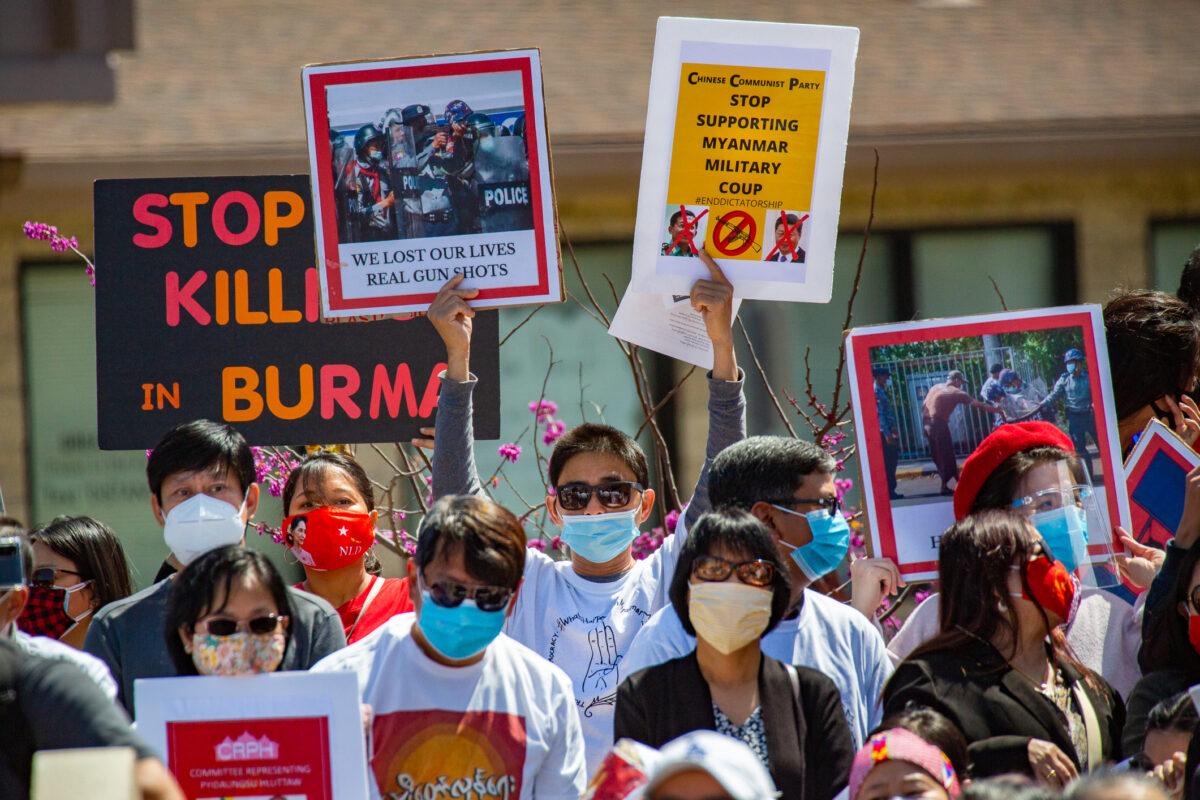
Since the coup, 177,000 people have been forced to abandon their homes, becoming internally displaced people (IDP). The IDPs seek refuge in camps. Having lost everything, witnessed violence, and seen no peaceful end in sight, they can become desperate. Young women are frequently trafficked from these camps to China to serve as brides. Women from Kachin and the northern Shan States, unable to farm or earn a living because of the loss of their land, are sold to Chinese families for forced marriage.
As a result of the violence associated with logging, the European Union and other Western actors have brought sanctions against the state-controlled Forest Products Joint Venture Company (FPJVC), which oversees most of Burma’s forest trade.
China’s official policy is that it will accept and do business with the incumbent power in a foreign country. This means that Beijing is willing to do business with the coup leaders, disregard of the opinions or feelings of Western nations. Pro-democracy employees of Burma companies have called a general strike, refusing to work with coup leaders. To avoid any interruption in its China business and to prevent disruptions of its cash flow, the junta has removed all civilians from the committees that work on the country’s joint projects with China.
Anti-coup protesters are aware of the financial support the generals are getting from Beijing and have called for a boycott of Chinese projects or even of shops that carry Chinese products. There have also been calls for violence against Chinese-funded projects, including pipelines and ports.
Western countries have brought sanctions against Burma for violations of human rights, but these measures are not as effective as they could be. Other actors simply step in to fill the void, such as China or Russia, which have very little interest in human rights issues within a foreign country. This means that Burma’s military will be able to secure funding through sales of natural resources to China and that Western observers and advisors will have little or no say as deforestation increases. As the junta will need to replace money previously earned on legitimate businesses with Western countries, they will most likely ramp up their environmental degradation, and with it, their oppression of their citizens. Additionally, they will become closer to the only “friend” who stood by them, in their hour of need, providing them with a constant flow of cash—China.
Views expressed in this article are opinions of the author and do not necessarily reflect the views of The Epoch Times.
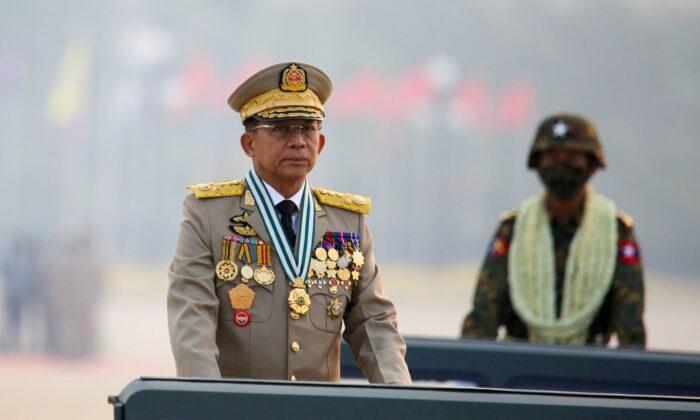

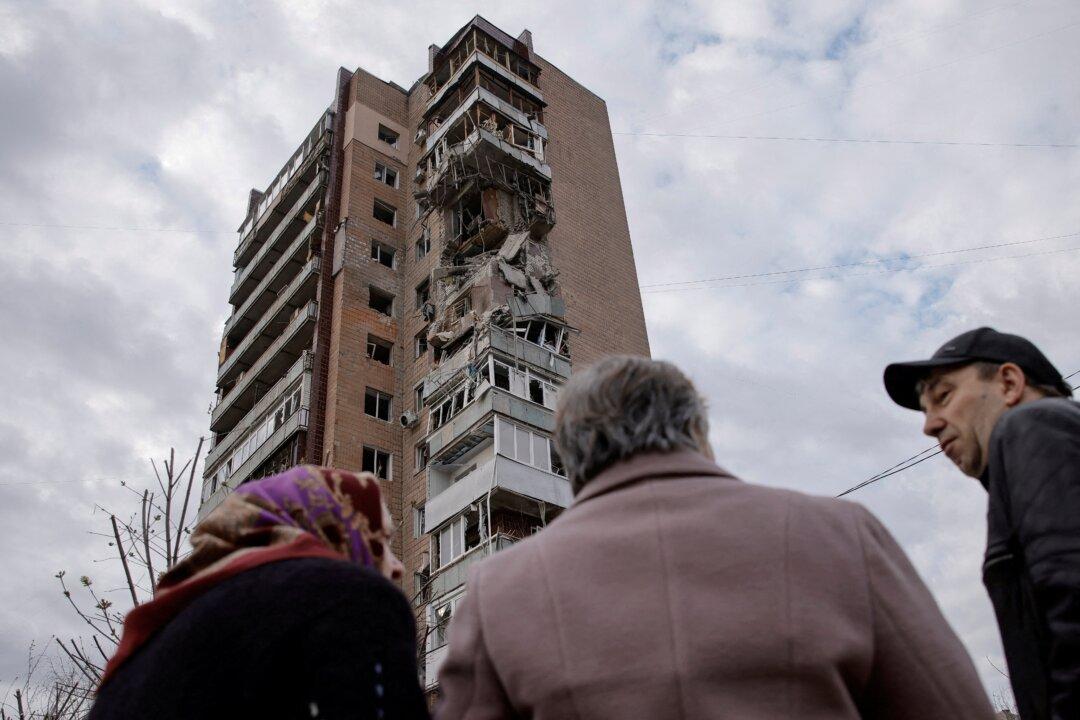

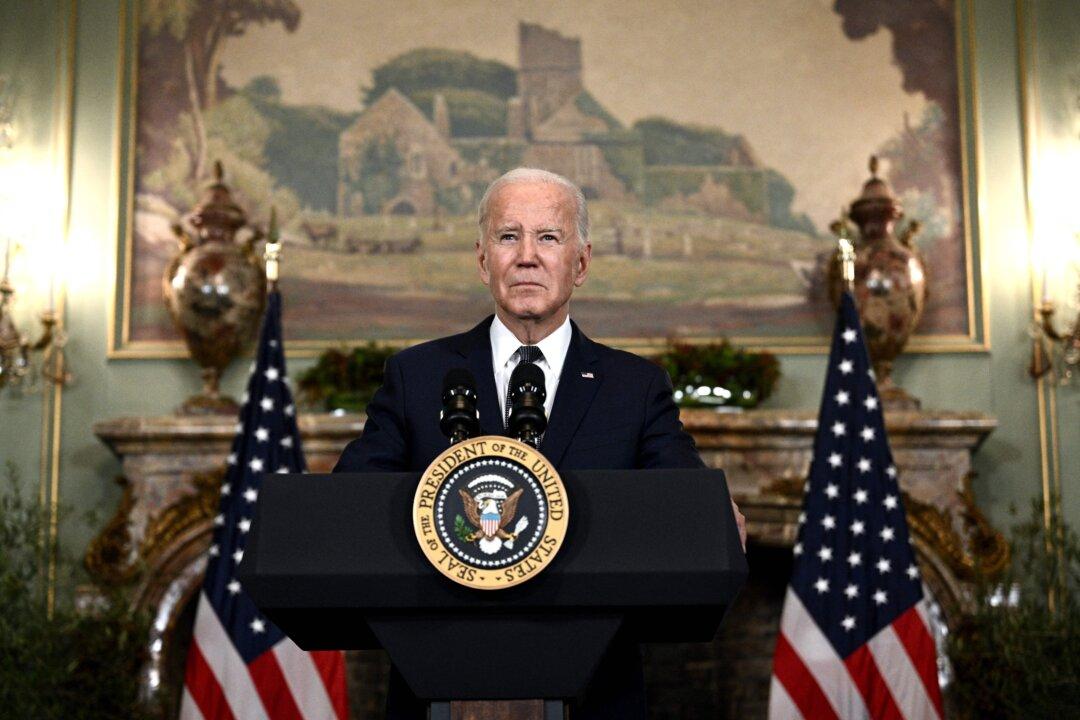
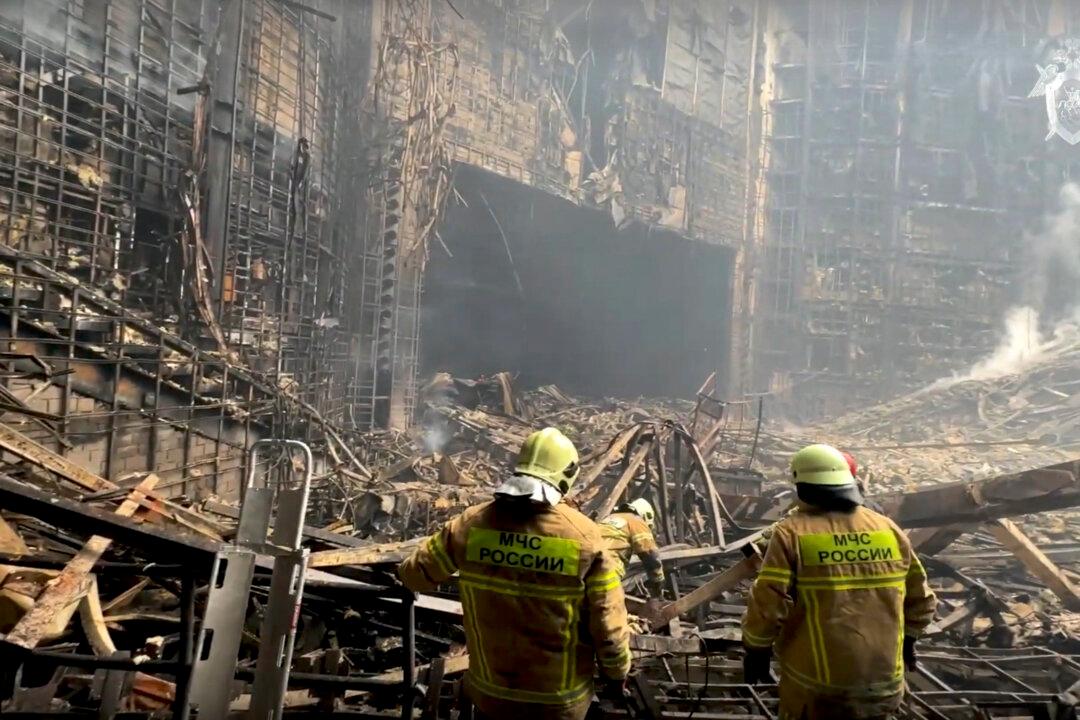
Friends Read Free